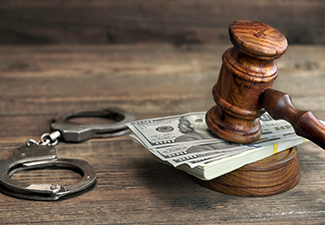How Bail Works in Florida
Aug. 18, 2023
 Bail serves as a crucial component of the legal system in Florida, providing individuals accused of crimes with the opportunity to secure temporary release from custody while awaiting trial. If you have been charged with a crime, you may be wondering what your next steps should be, including how bail works.
Bail serves as a crucial component of the legal system in Florida, providing individuals accused of crimes with the opportunity to secure temporary release from custody while awaiting trial. If you have been charged with a crime, you may be wondering what your next steps should be, including how bail works.
If you have been charged with a crime in Florida, call criminal defense attorney David Lee Sellers at David Lee Sellers, PA in Pensacola. David can help you understand your rights and the requirements when it comes to bail, and can further support you throughout your case.
What Is Bail?
Bail is a sort of payment (cash, a bond, or property) to the court that a judge sets for a person who has been arrested. The payment of the bail or bond allows the defendant to get out of jail and serves as a guarantee that the defendant will appear in court. If the defendant appears as directed, the bail money is returned. If the defendant does not appear, the bail money will be forfeited.
Who Qualifies for Bail in Florida?
Bail is allowed in Florida for many crimes, but certain serious crimes are not eligible for bail. These include first or second-degree murder, armed sexual battery, and armed burglary.
If you have violated your probation and are in jail, you are unlikely to be granted bail.
How Is the Amount of Bail Determined?
Different states and counties have different recommended bail amounts depending on the specific crime. For example, in Escambia County, Florida, the recommended bail for a 1st-degree misdemeanor (such as a DUI with no property damage) is $500, while any 3rd-degree felony (such as unarmed burglary) has a recommended bail of $2,500. Second-degree felonies (such as aggravated battery) carry a recommended bond of $10,000; the amounts only increase from there. As stated above, some crimes can make you ineligible for bail.
In deciding the bail amount, the judge will consider the recommended bail and other factors including the seriousness of your crime, the weight of evidence against you, previous criminal history, and your likelihood of harming yourself or others if released.
Occasionally, for a less serious crime, you may be “released on recognizance” (ROR). In Escambia County, for example, municipal or county ordinance violations carry a recommendation of ROR. In this case, you do not have to pay bail, but you still need to appear in court.
Bail often comes with conditions attached. While on bail in Florida, you must not commit any other crime. You must also follow any no-contact orders that the court issues—for example, you may be ordered not to call, email, or meet with specific people (such as the crime victim, witnesses, or accomplices) and you may have to stay a certain distance away from them. Other conditions may include abstaining from drugs and alcohol or wearing a GPS monitor to prevent you from leaving the state. If you violate these conditions, your bail money may be forfeited and you will most likely be incarcerated.
What Are Bail Bonds?
Depending on the severity of your crime, you may not be able to pay your bail. In this case, you can enlist a bail bond agent (or “bondsman” as commonly known) to pay the full amount of the bail in exchange for a fee that amounts to 10% of the bail amount. Unlike bail money, money paid to a bond agent cannot be refunded. The person contracting with the bond agent must also sign on to pay the full amount of the bail posted by the bond agent if the bail is forfeited (for example, if the defendant violates the conditions of bail or does not appear in court).
The Bail Process in Florida
For certain crimes, bail may be set upon your arrest, allowing you to avoid spending the night in jail. Otherwise, your bail will be set at your “first appearance,” or the first time you appear in court. This cannot take place more than 24 hours after your arrest.
At the first appearance, your bail will be set. If you can post bail that day, either with cash or through a bond, you may be released that day, although you may not be released for several hours.
You may also be able to put up a property bond by giving the court the deed to a non-encumbered property. This will most likely require another court proceeding.
Address Your Questions With an Attorney
If you require the assistance of an expert criminal defense attorney in Florida, call David Lee Sellers at David Lee Sellers, PA, for dependable legal guidance. With his experience as an Assistant State Attorney and a BV (“distinguished”) rating from legal service rating company Martindale-Hubbel, David brings excellence and compassion to every case. Call David Lee Sellers today for an appointment. He proudly serves clients in Pensacola, Crestview, Fort Walton Beach, and Milton, Florida.
